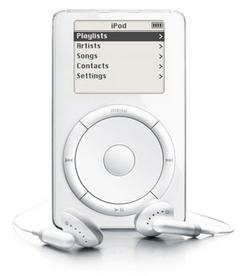Radiohead Lets Fans Decide

Free from their contract at Capitol Records, Radiohead turned the music industry upside down when they released their seventh album In Rainbows in October 2007. Not only was the entire album offered for download directly from the band's website but fans could pick the price they payed for the music.
I "bought" the album when I heard of the pay-what-you-want system. I must admit it was strange not paying for music and a band being OK with that. When a physical copy of In Rainbows was released I purchased it as well. I wouldn't have done so if the album sucked or even was mediocre.
Nine Inch Rails followed suit about 6 months later when they eleased The Slip from their own website for free.
"This one's on me" Trent Reznor posted on the band's website.
As the music industry caved in and died, artists have had to find new ways to promote and sell their music. While bands such as Guns N Roses and AC/DC made sure they got their money first buy signing exclusive deals with Best Buy and Wal-Mart respectively, Radiohead did it the right way by focusing on the music first knowing that great tunes will always sell - even if no one pays for it.
The iPod Dominates the World
 When I got my first CD player in 6th grade I thought it was the coolest thing ever. Sure the batteries never lasted and yeah it was a pain to decide which albums I wanted to take on road trips and yeah it sucked when those damn batteries died on the road trip leaving me stuck listening to my dad's Neil Diamond tape. But that was all I had.
When I got my first CD player in 6th grade I thought it was the coolest thing ever. Sure the batteries never lasted and yeah it was a pain to decide which albums I wanted to take on road trips and yeah it sucked when those damn batteries died on the road trip leaving me stuck listening to my dad's Neil Diamond tape. But that was all I had. Apple's iPod made sure I, or anyone else for that matter, never had to listen to Neil Diamond's Greatest Hits ever again. Now your entire music library can fit into your pocket. Not only can you bust out your favorite jams but get kill time with movies and TV shows as well.
iPods have not only changed they way we listen to music but how we purchase it as well. Newer modles of the mp3 player come with built in wi-fi letting listeners purchase all kinds of media through thin air. Just this year Apple's online music store surpassed Wal-Mart as the highest grossing music retailer in the United States.
Napster Kills The Music Business


2000 was the highest grossing year ever for the CD with nearly 1 billion total units moved and over $13 billion dollars earned. The music industry expected smooth sailing and bigger wallets for the rest of the decade when an unknown 18 year old computer wiz named Shawn Fanning created a little program called Napster.
Napster was one of the first file sharing systems used on a massive scale. When the software peaked in February of 2001 over 12 million users in the United States, and over 25 million users world wide, were sharing mp3s and other files.
The record industry cried foul and claimed copyright violations. Many artists, Metallica and Dr. Dre in particular, came out against Napster and fought for lost royalties while also threatening legal action if their music was not removed from the service.
While the site was court ordered to shut down, Napster was re-born as a monthly subscription service. After filing for bankruptcy the music service was purchased by Best Buy in 2008.
Napster was the first crack in the dam for the record industry. The business has gone from the highest of highs to ever decreasing lows with no bottom in sight. 95% of all music downloaded over the internet is done so illegally. Napster gave birth to Grokster, Kazzaa and was the grand daddy for the current torrent craze.
While critics of Napster might believe it destroyed something sacred, I belive it made music better in the long run. Yeah any one can download something for free, but if an artist or songwriter makes something good enough, peope will always buy it. Napster simply promoted musical darwinism.
Napster was one of the first file sharing systems used on a massive scale. When the software peaked in February of 2001 over 12 million users in the United States, and over 25 million users world wide, were sharing mp3s and other files.
The record industry cried foul and claimed copyright violations. Many artists, Metallica and Dr. Dre in particular, came out against Napster and fought for lost royalties while also threatening legal action if their music was not removed from the service.
While the site was court ordered to shut down, Napster was re-born as a monthly subscription service. After filing for bankruptcy the music service was purchased by Best Buy in 2008.
Napster was the first crack in the dam for the record industry. The business has gone from the highest of highs to ever decreasing lows with no bottom in sight. 95% of all music downloaded over the internet is done so illegally. Napster gave birth to Grokster, Kazzaa and was the grand daddy for the current torrent craze.
While critics of Napster might believe it destroyed something sacred, I belive it made music better in the long run. Yeah any one can download something for free, but if an artist or songwriter makes something good enough, peope will always buy it. Napster simply promoted musical darwinism.
No comments:
Post a Comment